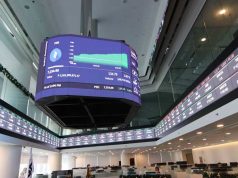HYUNDAI Asia Resources, Inc. (HARI) posted a 6% drop in sales in 2018, amid challenges faced by the auto industry.
In a statement, the country’s official distributor of Hyundai vehicles said sales last year reached 35,401 units, lower than the 37,678 units sold in 2017.
Sales of passenger cars slid 22% to 19,905 units, representing 56.23% of HARI’s total sales in 2018. In 2017, HARI sold 25,529 passenger cars.
The Accent model, which represented 75.56% of the segment, saw an 8.59% year-on-year sales decline to 15,041 units. Other passenger cars such as Eon and Elantra saw sales drop by 50.33% and 32.96%, respectively.
Light commercial vehicles (LCV) was the bright spot for HARI, with sales rising 27% to 15,496 units in 2018, driven by the introduction of the Kona.
Of the models sold under the LCV segment, H-100 saw a 51% jump in sales to 5,203 in 2018, from 3,439 in 2017. Other models, Tucson, Santa Fe and Grand Starex, dropped by 16.22%, 17.49% and 13.67%, respectively.
“Driven by the Kona, Tucson, Grand Starex, and H-100, the brand’s LCV models have topped in their respective sub-segments and ruminatively maintained an upward growth trajectory for the brands. As a result, this has offset any negative effects experienced by the Philippine automotive industry throughout the year,” HARI said.
Car industry players reeled from the imposition of the new vehicle taxes at the start of 2018. Further weakening the domestic market’s appetite was the country seeing inflation rates at ten-year highs.
Ma. Fe Perez-Agudo, HARI president and CEO, said 2019 “may be seen to fare much better” for the overall Philippine economy, thus have positive spillover effects in the automotive market.
“Hyundai’s performance in 2018 has proven that it is capable of remaining relevant in the local automotive market and ended the year on a high note. Thus, the brand is poised to take advantage of 2019 as economic conditions are expected to improve,” Ms. Perez-Agudo was quoted in the statement. — Janina C. Lim



